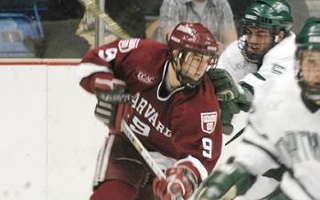Students who are not bound for college are getting shorted in their high school educations, Pulitzer Prize-winning journalist Hedrick Smith told an audience of about 150 last night at the Graduate School of Education.
Smith, author of the new book Rethinking America, compared U.S. schools to those in Japan and Germany. He noted that although the same percentage of students in all three countries complete college, only America lacks a vocationally-focused high school for the 70 percent of its students who will not attend college.
"The first thing people do when they get in trouble is to ask if we're doing things right," Smith said. "But the far more profound question is are we doing the right things?"
Smith said U.S. education is not doing the right thing because it does not link what is learned in the classroom with real-life experience.
"These are kids that we as college types have not found ways to connect with," Smith said of what he called the "neglected majority."
The problems in education are continued in the American workplace, where workers are not expected to think about ways to improve the products they are producing, Smith said.
For example, Smith said that turnarounds in major companies like Ford occurred when the workers were given a chance to contribute.
"For the first time in my 20 years as a Ford manager, we're using the minds of the people that work here," Smith said a plant manager told him.
When workers contribute new ideas in their workplace and deliver a quality product, Smith said, production gains can be made.
But those gains will be difficult to achieve and America will slip behind in an increasingly com- "If you want to tap the minds of your workers...you've got to have a different kind of person who gets in your plants," he said. Smith said the higher number of students taking calculus in other countries is an example of the successes that come with an educational system geared more towards the middle student. Smith emphasized that the U.S. must focus on developing every individual in its society if it expects to remain competitive in today's world. "The secret is understanding we compete one person at a time," Smith said. "Absolutely every person's got to be the best.
Read more in News
Panel Finds Female Voters Influential in 1996 ElectionRecommended Articles
-
Who Rules the Universities?T HE STORY MIGHT READ BETTER as a novel, opening as it does with a scene that Sinclair Lewis would
-
 ON HOCKEY: Season of Struggles Has Taught Harvard How to Prevail
ON HOCKEY: Season of Struggles Has Taught Harvard How to Prevail -
A Student Center and a Cement MonstrosityThe success of the building will hinge on how responsive the designs are to student suggestions. This new space simply will not work if it feels sterile or separated from the rest of Harvard. If it feels like the SOCH, it will be a failure.
-
 Crimson Prepares to Take On Killer Ps
Crimson Prepares to Take On Killer Ps -
Despite Support, Smith Says University Will Not Fund UC Budget Increase this YearFollowing a meeting Monday with Dean of the Faculty of Arts and Sciences Michael D. Smith, top Undergraduate Council leaders said that their request for a 50 percent increase in funding for student activities this year from the University was denied, even as Smith voiced support for their efforts and discussed funding possibilities for the future.
-
 With $1.3 Billion Pledged, FAS Campaign Over Halfway to Goal
With $1.3 Billion Pledged, FAS Campaign Over Halfway to Goal













